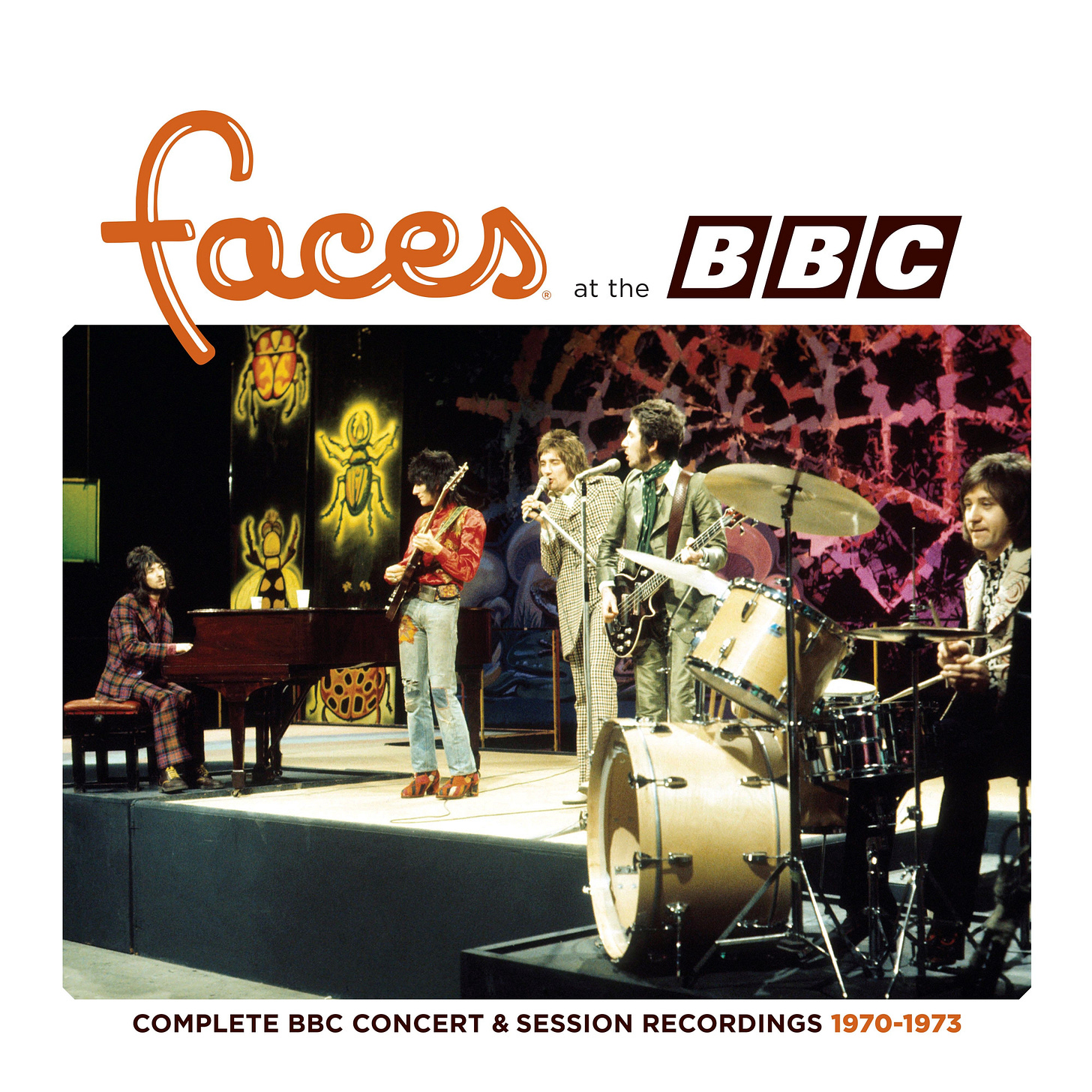Faces at the BBC: Had Me A Real Good Time
The complete BBC sessions capture the raucous rockers at a joyous peak.
Faces at the BBC: Complete BBC Concert & Sessions Recordings (1970-1973) [2024; 1970-1973]
Twenty years ago, the Faces released Five Guys Walk Into A Bar…, a four-disc compilation I called "quite possibly the greatest box set ever made" upon its release. I'm not sure I'd state it any differently today. Five Guys Walk Into A Bar… performed the great service of capturing the spirit of a notoriously messy band, one so unruly they couldn't quite pull it together to make one undeniable album. They got close, very close, a couple of times, assembling a sturdy songbook designed to be delivered during concerts that always threatened to transcend into debauchery.
A sequel of sorts, Faces at the BBC: Complete BBC Concert & Session Recordings (1970-1973) captures those moments of raucous joy again and again over the course of eight CDs (and one BluRay). Containing all the known surviving tapes of the Faces' many appearances at the BBC (only one session, lasting a mere three songs, is missing), the box eschews a strict chronological order in favor of a sequencing that mirrors the pacing of a good concert: after a warm-up, the box swiftly hits its stride, humming along at a high level before concluding with an epilogue that brings us back to where it all started.
More precisely, the last featured session here hints at one of the main stressors plaguing the Faces: it concludes with a rendition of "Maggie May," the 1971 blockbuster that ultimately separated Rod Stewart from the rest of the pack. It took a while for the ramifications of the success of "Maggie May" to play out. Ronnie Lane walked away from the group in the summer of 1973, apparently frustrated that the scales started to tip toward Stewart's favor. Although the group stumbled through another year or so—even cutting a single as charming as "You Can Make Me Dance, Sing or Anything (Even Take the Dog for a Walk, Mend a Fuse, Fold Away the Ironing Board, or Any Other Domestic Shortcomings)" (it's hard to resist including that absurd parenthetical)—the air had gone out of the balloon. Once the first member of the gang leaves, the chemistry irrevocably changes.
The Faces held their last BBC session a few months before Lane's departure which means this box chronicles the time they were at their peak, playing shows where the party started at a pub before the show, carried through to a bar onstage, and then headed back to the hotel afterward. The radio constraints of the BBC sessions mean that these recordings are rarely sloppy: they're loose, capturing the moment when the group achieved a collective buzz. No matter the length or date of the session, the Faces always reached this rock & roll equilibrium, sounding rowdy and gregarious as they rambled through originals, blues, and refurbished folk-rock, balancing numbers debuted on Rod's solo albums with hits swiped from their peers (Paul McCartney's "Maybe I'm Amazed," Free's "The Stealer"). All the three and four-song sessions collected here are potent but it's the full-length concerts that run from the second disc through the sixth that are truly majestic: there's space for the Faces to lay back as well as rock out, to add bittersweet undertones to their raucous joy.
Poignancy isn't an uncommon emotion for the Faces. It fuels their ramshackle farewell "Ooh La La," notably unheard here, and also is a grace note on the closing of "Had Me A Real Good Time," where Rod recounts a party by singing he "was glad to come, but I was also glad to get home." Rockers rarely acknowledge the appeal of home which may be one of the reasons the boisterous antics of the Faces are so endearing: it's a celebration of connection, the bonds that tie a band not only to each other but to their audience and community. The mess that is endemic to the Faces is a key reason why they sound so utterly alive and life-affirming; they're drawing strength from their flaws. The nifty thing about Faces at the BBC is that while it still teems with their disheveled essence, it also captures the band at their most focused, preserving a series of performances where they conjured their particular sense of ragged intimacy with the hopes of snagging a wider audience. When everything falls into place, usually through some kind of accident, that combination of hunger and humanity can make the Faces sound like the greatest rock & roll band that ever was or ever will be.

